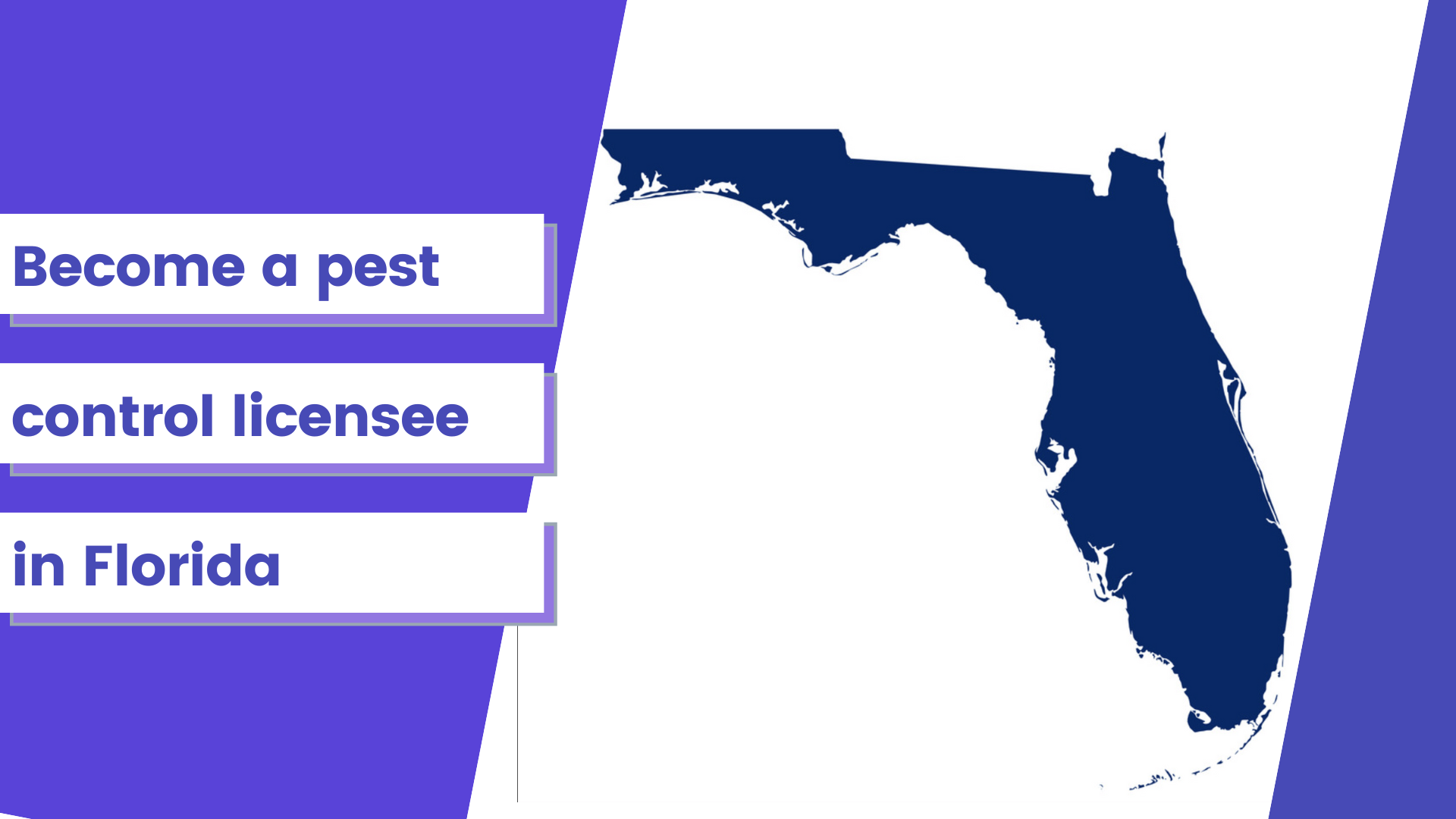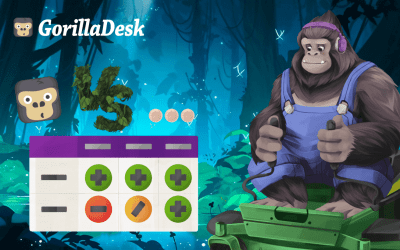Your pest control license in Florida: the how, what and why
GorillaDesk Staff

After all, relentless humidity, intense heat, and frequent storms — the things Floridians love to complain about — just happen to make for the perfect environment for a lucrative, year-round career in pest control. So it’s no surprise to hear that Florida sees the highest demand for pest control services across the entire US, making getting your Florida pest control license an easy decision when you’re in pursuit of a stable and recession-proof career. According to a recent IBIS report, the Florida market size is currently at $3.1 billion and counting. No number to balk at.
The heart of the business: certified operators
At the core of any pest control business is a Florida-certified operator overseeing pest control operations and who can be certified in specific categories under:
- General Household and Rodent Control
- Lawn and Ornamental Pest Control
- Termite and Other Wood-Destroying Organisms Control
- Fumigation
You can become certified in as many of these categories as you want.
Here’s what to expect:
The basics behind obtaining your Florida pest control license
In Florida, the Department of Agriculture and Consumer Services (FDACS) is your go-to resource for everything related to the Florida Department of Agriculture pest control license. The license itself is a requirement for businesses providing structural pest control, ensuring they adhere to the highest standards and have the necessary expertise.
(You can also opt for a Public Health Control license for government employees or government-contracted vendors looking to apply mosquito control solutions.)
The three-step process includes:
1) Applying for the pesticide applicator’s license/exam to receive your exam voucher
2) Scheduling your exam (after you receive your voucher number) to take at either a testing center — or at home online
3) Take — and pass — the exam
Nervous? Don’t be; you’ve got a plethora of study resources and courses at your fingertips.
The different types of licenses:
Private Applicator License
a) Who needs it? People using restricted pesticides on property they own, rent, or their employer’s property for agricultural purposes (farms, ranches, nurseries)
b) Substitutions: A commercial applicator license can substitute for private applicator uses.
Public Applicator License:
a) Who needs it? Employees of government entities using restricted pesticides for agricultural applications during employment
b) Qualifying individuals: Municipal electric companies, city/county parks, government-owned railways, state/federal highway departments, and state universities.
c) Substitutions: A commercial applicator license can substitute, but consider liability issues and discuss with your employer.
Commercial Applicator License:
a) Who needs it? Individuals using restricted pesticides on non-building-associated agricultural or related areas for various purposes
b) Uses include: Contract applications for others to outdoor sites, non-agricultural outdoor uses not associated with buildings
c) Examples of applications: Golf course turf maintenance, aerial application services, aquatic weed control, park/cemetery maintenance, highway right-of-way maintenance, and custom pesticide/fertilizer blends to agricultural lands
Limited certification programs:
FDACS administers Limited Certification categories for various purposes, including commercial landscape maintenance, governmental or private applicators, commercial urban fertilizer applicators, and limited Wildlife Management. These programs cater to specific needs without authorizing the operation of a commercial pest control business.
Qualifying to take the Florida pest control license test
The path to becoming a certified operator involves either experience or education (or a combination of both). Here’s a quick breakdown:
Experience:
a) High school education or equivalency
b) Three years of pest control service experience (one year under a Florida licensee)
Education:
a) A degree and 20 semester hours or 30 quarter hours in relevant fields (though those without a degree may qualify with 24 semester or 36 quarter hours of advanced training in relevant fields like entomology, botany, agronomy, or horticulture)
b) One year of pest control service experience under a Florida licensee
The exam journey
You’re probably gathering by now that the Florida Certified Pest Control Operator exam is the gateway to your certification. At $300 per category, in addition to any costs you’ve set aside for prep courses and materials, consider it an investment in your future. (The fee for Special Identification in the Fumigation category is $200.)
Get prepared
When it comes to prepping for the exam, a sea of resources will help you get ready, from courses to study materials and practice tests. A simple Google search will yield a ton of options.
License renewals
We know the bureaucratic side may seem overwhelming, but FDACS does try to streamline the renewal process. Keep an eye out for renewal notices and ensure you’re up-to-date with the latest requirements. Licensed applicators have to recertify by retaking the exams or earning the required number of Continuing Education Units (CEUs).
Helpful contacts
If questions arise as you’re researching how to get a pest control license in Florida, don’t hesitate to reach out to the Bureau of Licensing and Enforcement at 850.617.7997. They’re there to guide you through the process and address any concerns.
Check back often for more info and resources to help you get your lifetime career and business off the ground. We’re here to help.
Other posts to check out
Make the move from paper to digital: A step-by-step guide for field service pros
If your field service business is still doing business on paper, it’s time to make a change. Here’s how to find success with a move to digital.
Pest control marketing: Let’s make that phone ring
With so many other local pest control companies making competition tight, keeping that phone ringing with new customers may not feel as easy as you thought. To keep your pest control business growing takes marketing know-how. Here are our best tips.
How to get more positive customer feedback
Customers trust online reviews just as much as word of mouth from friends and family. The truth is: Online reviews can make or break your local services business. Here’s how to build that glowing reputation your service deserves.
Tree service marketing: 11+ ideas to drive more customers in 2026
Drive more leads with our ultimate tree service marketing guide! Discover 11+ proven strategies to grow your business and attract the right customers.
How to start a tree service business in 2026
Learn how to start a tree service business with step-by-step guidance on planning, licensing, equipment, marketing, safety, and scaling your company.
Landscaping services list: What to offer your customers
Discover the top landscaping services to offer for maximum profit. From design to maintenance, expand your business with our comprehensive landscaping services list.
Transform your business
Try it free for 14 days. No credit card required. Instant setup.
★★★★★
We will be customers for life
“I can not say enough good things about GorillaDesk it saves us so much time and money. The customer service is the best. I would recommend GorillaDesk to anyone no matter what industry. I trained my employee in 5 minutes on how to use it. We will be customers for life.”

Ryan Sullivan
Business Owner
Ready to Get Started?
Get all our amazing features and top-rated support, with no credit card required.






